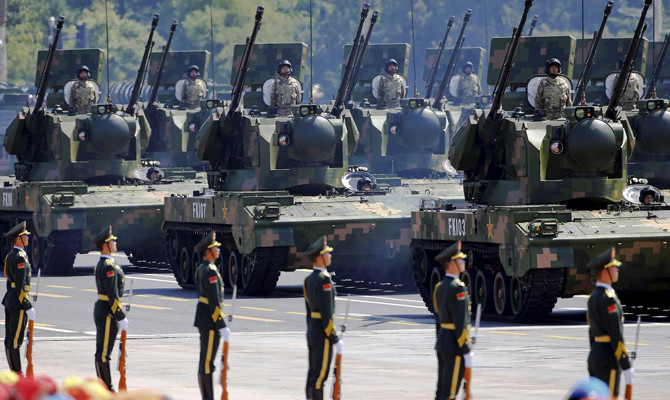NEW DELHI: A resumption of joint military exercises between India and China will reduce tensions between the two nuclear-armed adversaries, experts said on Friday.
The two countries hold annual military drills, known as hand-in-hand exercises, but failed to agree on a joint exercise in 2017. Now, according to local media reports, Beijing has asked New Delhi to resume the drills, indicating an improvement in relations.
“Every time there is any tension between the two countries, there is a break in these military drills,” said Lt. Gen. (Retd.) S.L. Narasimhan, a China expert. “Any kind of interaction is a good thing. It will increase mutual trust and understanding and help reduce tension.”
India and China are old rivals. India has lost one war to its eastern neighbor and the two continue to wrestle for dominance in the subcontinent. China is also a political and military ally to India’s arch-enemy on its western flank, Pakistan.
In May 2017, Sri Lanka refused a request by China to dock a submarine on the island. Sri Lanka agreed to a similar request in 2014, resulting in fierce opposition from India, which is worried about a growing Chinese presence in its neighborhood.
A month later, India and China were locked in a face-off on the Doklam plateau, a 100 square kilometer plateau and valley at the boundary of India, Bhutan and China. The area is the subject of a dispute between China and Bhutan.
More recently, China sold Pakistan a highly sophisticated, powerful optical tracking and measurement system, making it the first country in the Indian subcontinent to acquire a missile that is capable of carrying multiple nuclear warheads and one that can overwhelm a missile defense system. The Chinese team spent three months in Pakistan assembling the system and training Pakistani officers.
News of the sale came on the heels of India testing its Agni-V Inter-Continental Ballistic Missile, which can strike almost all of China. Experts agreed that the “leak” of the sale of the tracking equipment was China’s message to India that it had ways to counter the Agni-V.
Now both sides are trying to ease the tensions, Narasimhan said.
According to Indian media reports, New Delhi asked senior leaders and government officials to avoid events planned to mark the 60th anniversary of the Dalai Lama’s flight from Chinese authorities to India because it was a “very sensitive time” for bilateral relations with China.
Soon after Foreign Secretary Vijay Gokhale flew to China to meet the Chinese foreign minister. This was followed by the most recent reports of Beijing asking New Delhi to restart the military drills.
“Both sides seem to be practically inclined to get on with bilateral relations,” Narasimhan said. “Both seem to be reaching out to each other and that’s a good thing.”




















